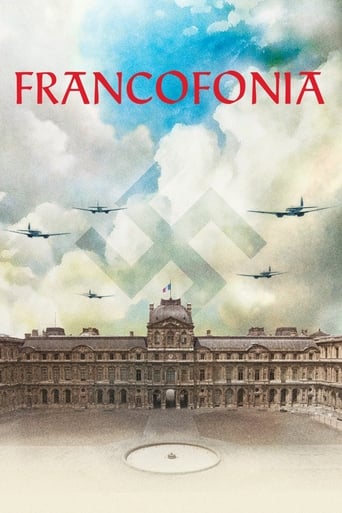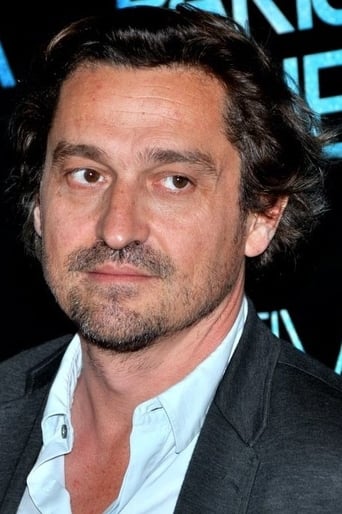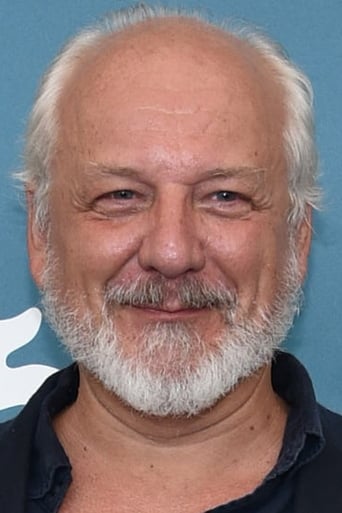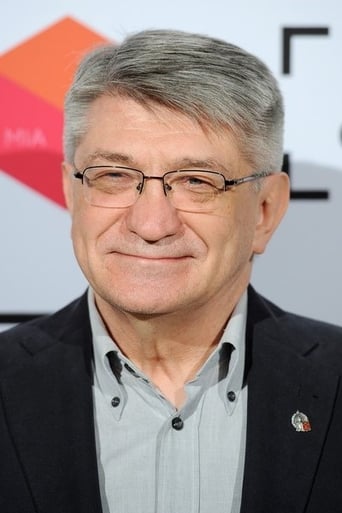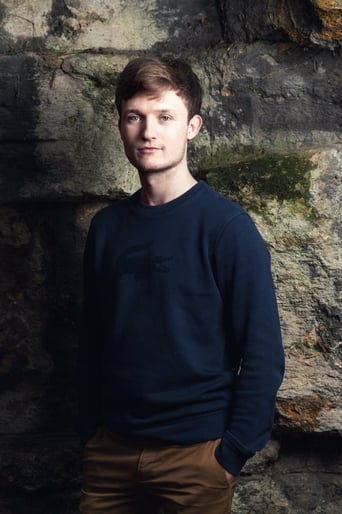Laikals
The greatest movie ever made..!
Skunkyrate
Gripping story with well-crafted characters
Hattie
I didn’t really have many expectations going into the movie (good or bad), but I actually really enjoyed it. I really liked the characters and the banter between them.
Staci Frederick
Blistering performances.
treywillwest
A spectacular and unique essay film. At once a philosophical rumination on the connection between art and power, a history of the Louvre- particularly during the Vichy regime, and a surprisingly powerful and human narrative of the French civil servant and German aristocrat and Nazi officer who collaborated to save the collection from plunder. Unflinchingly, the film equates art with plunder. As any serious study of the Louvre must, by definition, be this is a tale of Napoleon, invasion and imperialism. The Emperor is himself a character in the film, haunting the halls of his museum and reminding the director/narrator that all of the paintings are of him, for none of it would be there without his power. The point is also made that Paris was sparred the devastation of the war in no small part because the leading Nazis loved classical art and wanted the Louvre's collections for Germany and themselves. In a real sense, then, the film must uneasily acknowledge, the German regime was responsible for the preservation of much European cultural treasure. The Louvre, though to a degree the very phenomenon of the art museum, is made to seem like a place where humanism, the preservation of the human image, and sheer political force, come together. Sukarov's imagery is characteristically spectacular. The amazing, painterly light that he most often brings to the human face he here brings to the urban face of Paris. This film includes some of the best uses of crane shots that I think I've ever seen.
lasttimeisaw
Revered Russian director Aleksandr Sokurov's paean to the Louvre Museum and mankind's art treasure is an inventive genre-buster but also a bemusing underachiever. Reconstructing the scenarios of Louvre under Nazi occupation during WWII, Sokurov blots out the distinctions between documentary and fiction filmmaking: archival documents and vintage photos, recurring shots of an anonymous apartment at present where video footage of a struggling cargo ship amid the choppy ocean is playing on the computer, interlaced into a lax narrative re-enacting the story between Jacques Jaujard (de Lencquesaing), the director of the French National Museums and a Nazi officer, Count Franz Wolff-Metternich (Utzerath), predominantly, their so-called Kunstschutz (art protection) movement during WWII, which has spawned a feeble Hollywood dramatization, George Clooney's star-studded THE MONUMENTS MEN (2014). Yet, the film's overall effort fails to pass muster as a competent infotainment which dissects the cardinal situation where arts and warfare corralled together, Sokurov's platitudinous commentaries breathe with a wisp of solipsistic sentiment, although perambulating inside the Louvre is inherently enchanting, and Sokurov's slick camera-work guides viewer to the ensconced masterpieces with his trademark aplomb and dexterity, not to mention the awesome temporal morphing panorama feat. Personally, the segment where the camera slithers around a mummy exhibit is quaintly numinous. But our tour is often interrupted by a resurrected Napoléon Bonaparte (Nemeth), repugnant and irksome in his boosted egoism, and Marianne (Korthals Altes) repetitively uttering the incantation of "liberty, equality and fraternity", when you have the entire Louvre at your feet, but we are only allowed to glance at such a limited purview, rank dissatisfaction inevitably materializes. Stripped off the "single take" stunt with which he has stunned the world in Russian ARK (2002), this belated pendant work haplessly betrays that Sokurov's ambition and talent has ebbed away significantly, especially when his disaffected grouse can be overtly detected through counterpointing the disparate circumstances between France and his fatherland, a close-minded overtone of editorializing writ large woefully.
socrates99
This is the last Aleksandr Sokurov movie I'll ever see. I'm sure this guy means well, but his cinematic instinct isn't very entertaining, even though someone with money clearly thinks otherwise.I recently visited the Louvre. It is far more impressive than you would think seeing this movie which attempts to avoid responsibility for showing it to you by purporting to be an brief account of it during the German occupation. It fails even at that rather small ambition.There are a few flashes of adequacy but they're so few and far between that it's not worth sitting through it all. Watching this was a big waste of time.
Barbouzes
I am sorry to say: what a chore. Who is Sokurov and how does he get any producer to give him money to produce such drudgery? The man had already lost track (and sight) of his audience when he inflicted on it his overly long and deliberately confusing "Russian Ark", whose only redeeming value was its one terrific camera trick. Russian Ark, as a historical documentary, had no substance, no coherence, and displayed both huge gaps and bias. Alas, here is our mad Russian director at the task again , examining this time the Louvre museum, and extemporaneously droning on …well, what exactly is his topic? A mishmash of disconnected anecdotes, vague philosophical remarks, ridiculous or pompous -and mostly reactionary- statements on art and history. And, as he did in Russian Ark, he reprises his lethal habit of using as our "guide" an annoying character about whom we know nothing and care little about. In Russian Ark, it was an exasperating curmudgeon who literally whined about everything from room to room; Here, it is apparently Sokurov himself, seen only in silhouette as the narrator, speaking via Skype to a mysterious ship captain named Dirk, or via camera to count Wolff Metternich, or more often than not, to himself indeed while preaching to his captive theater audience. For every one good idea, 10 bad ones kick it off the screen. In the 1950s in France, was a filmmaker/playwright/actor and bon vivant named Sacha Guitry who produced, directed and acted in many self aggrandizing movies about France history ("Si Versailles m'était Conté"is the most famous), but while picking and choosing his anecdotes as director and acting in them as the narrator - like Sokurov- Guitry was always witty, fast and light on his feet: he never lost track of his audience's needs and pleasure. History was his pretext, entertainment his goal. Mr Sokurov…is no Sacha Guitry. I venture to say that, between the mysterious Captain Dirk recurrently moping on his ship, "Marianne" trolling around the Louvre with her ecstatic and repeated utterance of "Liberty, Egalité, Fraternité", and Napoleon himself running around the Louvre like a petulent child bragging "it is me!", one can actually question the sanity of the director responsible for a script as sophomoric as this. I saw the film in a Berkeley theater: the movie went on for what seemed like 4 hours -when it is only 90 minutes. Those were 90 minutes I never wish to waste again.
